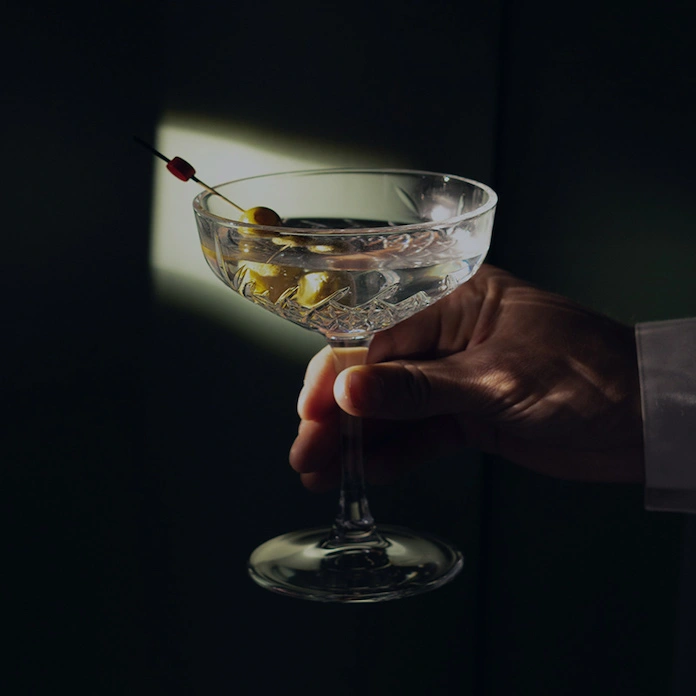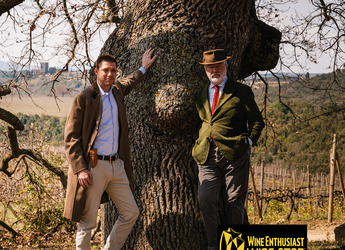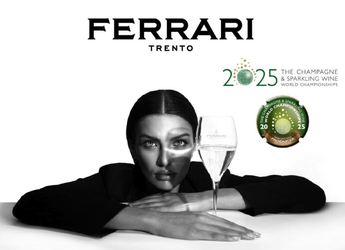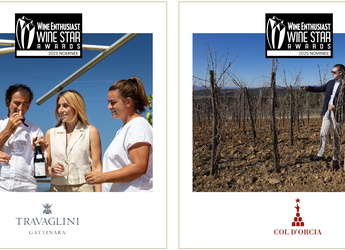
Pfaffl History-Making Austrian Wines

When Roman and Adelheid Pfaffl ambitiously began to expand their humble farm into a full-time vine-growing estate in 1978, they had no idea they would wind up making Austrian wine history.
In just 20 years, they went from having less than a hectare of vines to farming 20 hectares / 50 acres that meander through 10 villages across the Weinviertel appellation in Niederösterreich (Lower Austria). Their vineyard holdings have since expanded to around 150 hectares / 371 acres and include the two small vineyard sites of Herrenholz and Praschen, high on a plateau on Bisamberg Mountain.
But the Pfaffls’ pioneering spirit reaches beyond just their own vineyards. After years of championing their home’s fine-wine potential, Roman — chair of the Weinviertel region at the time — led a successful 2002 campaign to officially designate the area as Austria’s first Districtus Austriae Controllatus (DAC), to once and for all cement Weinviertel’s top-notch terroir status.
Today, the Pfaffl family continue to be a unified front, focusing on crafting impeccable wines that reflect authentic Austrian terroir through depth, minerality, and balance. Pfaffl wines are famous for being undeniably elegant — full of verve, never austere, and with just the right amount of delicate fruit — unlike their riper, fuller-bodied counterparts from slightly warmer regions like the Wachau.
In 2004, Roman Josef (Roman’s son) took on the role of winemaker while his sister, Heidi Fischer, now oversees the marketing and commercial side. Roman (senior) still looks after the vineyards and Adelheid watches over the newest generation, her grandchildren. The family remain proud ambassadors for high-quality grüner veltliner, riesling, chardonnay, zweigelt, and st. laurent, a dedication that saw them named “European Winery of the Year” by Wine Enthusiast magazine in 2016 — a first for a winery from Austria. Clearly, the stage has been set for an incredibly bright future at this pioneering Austrian estate.

-
Founded
1978 -
Location
Weinviertel, Austria -
Follow On
Terroir
The Weinviertel region in Niederösterreich stretches north to the border with Czechia and east to Slovakia. It is dominated by loess soils as well as a classic continental climate which allows for perfect grüner veltliner growing conditions. Loess is a rich rock which retains more moisture than other types of soils — ideal for grüner, whose roots plunge deep in the search for water.
Here the region also produces a lot of red wine which makes up a quarter of its total production. While the climate is favorable to Austria’s flagship white grape, it is relatively mild, and warm air often makes its way north from the Pannonian lowlands to create perfect conditions to ripen red varieties. Thanks to quality-focused producers like the Pfaffls, wines from the Weinviertel are making a serious name for themselves among the fine wines of Europe.

Viticulture
Pfaffl works within some very special terroirs — they farm some 13 different sites across the region. Their Zeisenek vineyard is located on top of the world’s largest fossil oyster reef. At just 17 million years young (!) this soil produces incredibly aromatic and peppery grüner veltliner. And the Sonnleiten vineyard is planted on special terraces on a very steep slope — vines are protected from the northern winds by a small wall that was built on top of the vineyard. The grapes here show great minerality from stony soils and ripen very well due to the site’s southern exposure. All grapes are selected manually in the vineyards and are hand harvested.
Biodiversity is key for the Pfaffl winery. They have planted meadows of wildflowers amongst the vineyards to attract beneficial insects. This increase in flora and insect life has allowed Pfaffl to rely on natural ways to combat pests and to enrich their soils. They are also experimenting with different methods to manage their canopies so they can make fewer trips down each row, thus reducing their CO2 output.

Pfaffl Wines Lead the Way in Sustainability
Apart from their work in the vineyards, the Pfaffl family also pay significant attention to their energy use. In 2022, the family installed a photovoltaic (solar) system in the cellar which covers all energy needs. They switched to lightweight bottles with vintage-neutral front labels and print back labels themselves as required, thereby avoiding overproduction and unnecessary waste. Even the warehouse setup is eco-friendly, with materials ordered and stacked in such a way as to reduce truck journeys. The winery is heated with geothermal energy and in the wine cellar the team also use heat recovery from fermentation.








